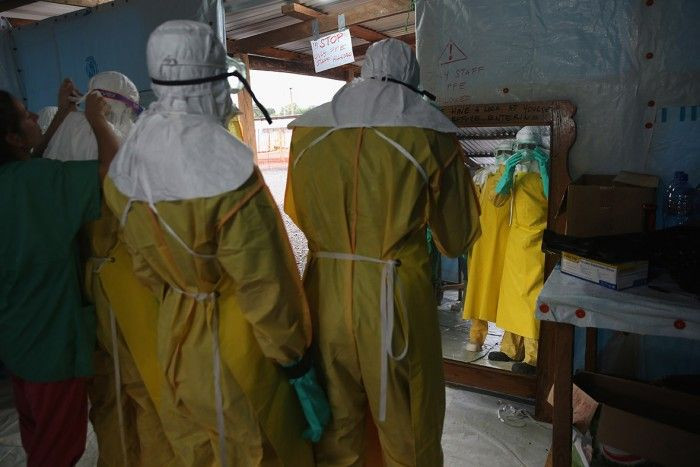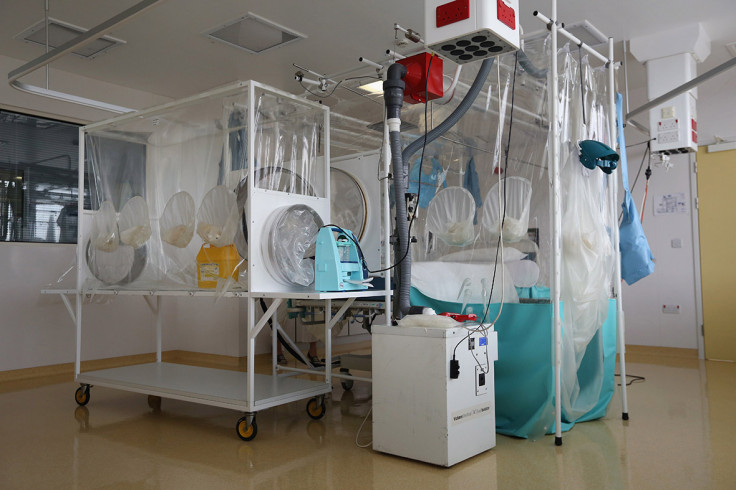First British Ebola Sufferer Flying Back To UK

UPDATE 4:30 p.m. EDT: An RAF Northolt specially equipped C-17 aircraft ferried Britain's first confirmed Ebola sufferer from Sierra Leone to London Sunday, the BBC reported. A Health Department spokesman said the patient is "not currently seriously unwell."
Original post:
The first confirmed Briton known to have contracted the deadly Ebola virus is being flown back to the U.K. from Sierra Leone, the Department for Health has confirmed. The man, believed to be a medical worker but whose identity has not been released, is on an RAF plane that departed Freetown, Sierra Leone's capital, Sunday.
It is thought he will be placed inside a special bubble aboard the specially equipped C17 RAF called an air transport isolator. Following the eight-hour flight the Ebola victim -- who according to a Department of Health spokesperson is "not currently seriously unwell" -- is expected to be taken from RAF Northolt, near Heathrow, to London's Royal Free Hospital.

The Royal Free has Britain's only "high level isolation unit" in its High Secure Infectious Disease department. Consisting of two beds each inside special ventilation tents, the unit has been ready for weeks since the Ebola virus began to spread across West Africa. It is thought the man is being transferred to ease pressure on Sierra Leone's ill-equipped health service.
The news comes as the Wellcome Trust announced a multimillion pound research initiative into the virus which is currently untreatable and has a mortality rate as high as 90 percent. The World Health Organization now says it will allow the use of experimental drugs and vaccines.
WHO reports 2,615 confirmed cases and 1,427 deaths since the Ebola outbreak began in March. The organization said the true figures may be far higher because many people do not go to a hospital when infected and often are buried without officials being informed.
The initial symptoms of Ebola include headache, fever, sore throat, muscle weakness and muscle pain.
Professor John Watson, Britain's deputy chief medical officer for England, said the risk of the disease spreading in the U.K. is very low and the country is well-prepared to cope.
"We have robust, well-developed and well-tested NHS systems for managing unusual infectious diseases when they arise," he said, "supported by a wide range of experts."





















